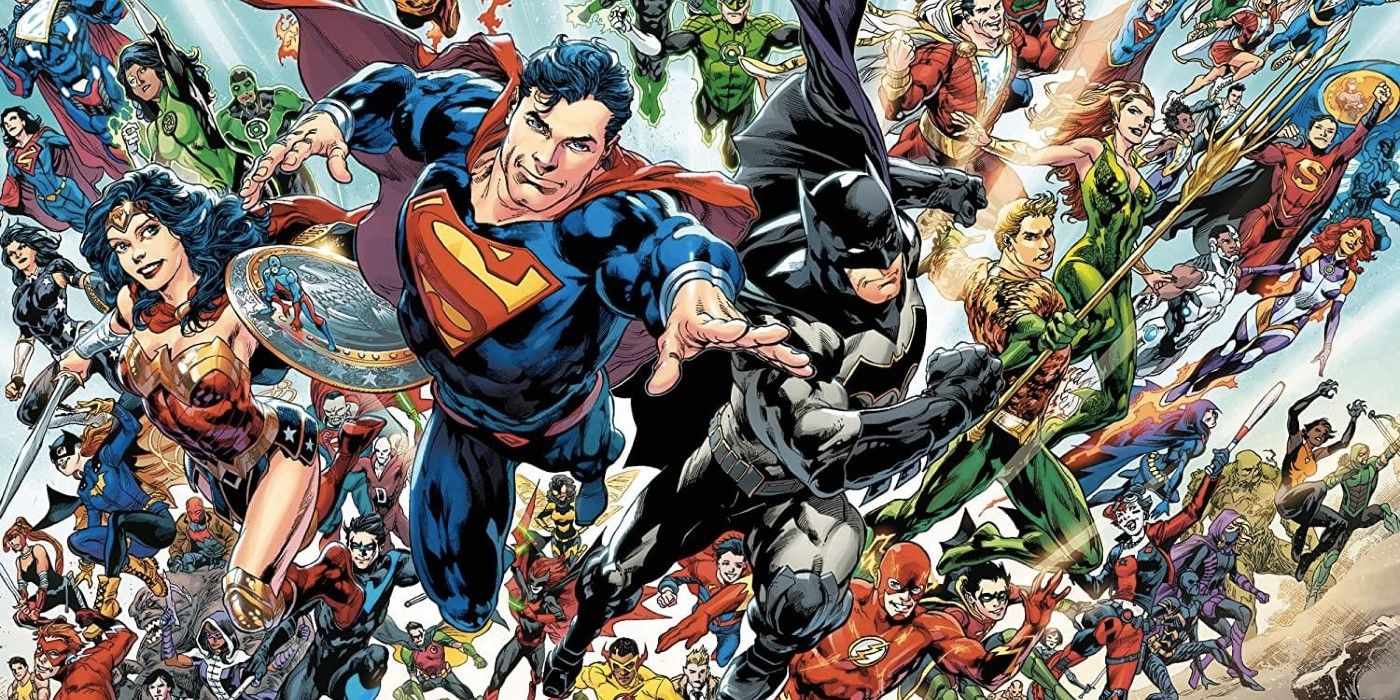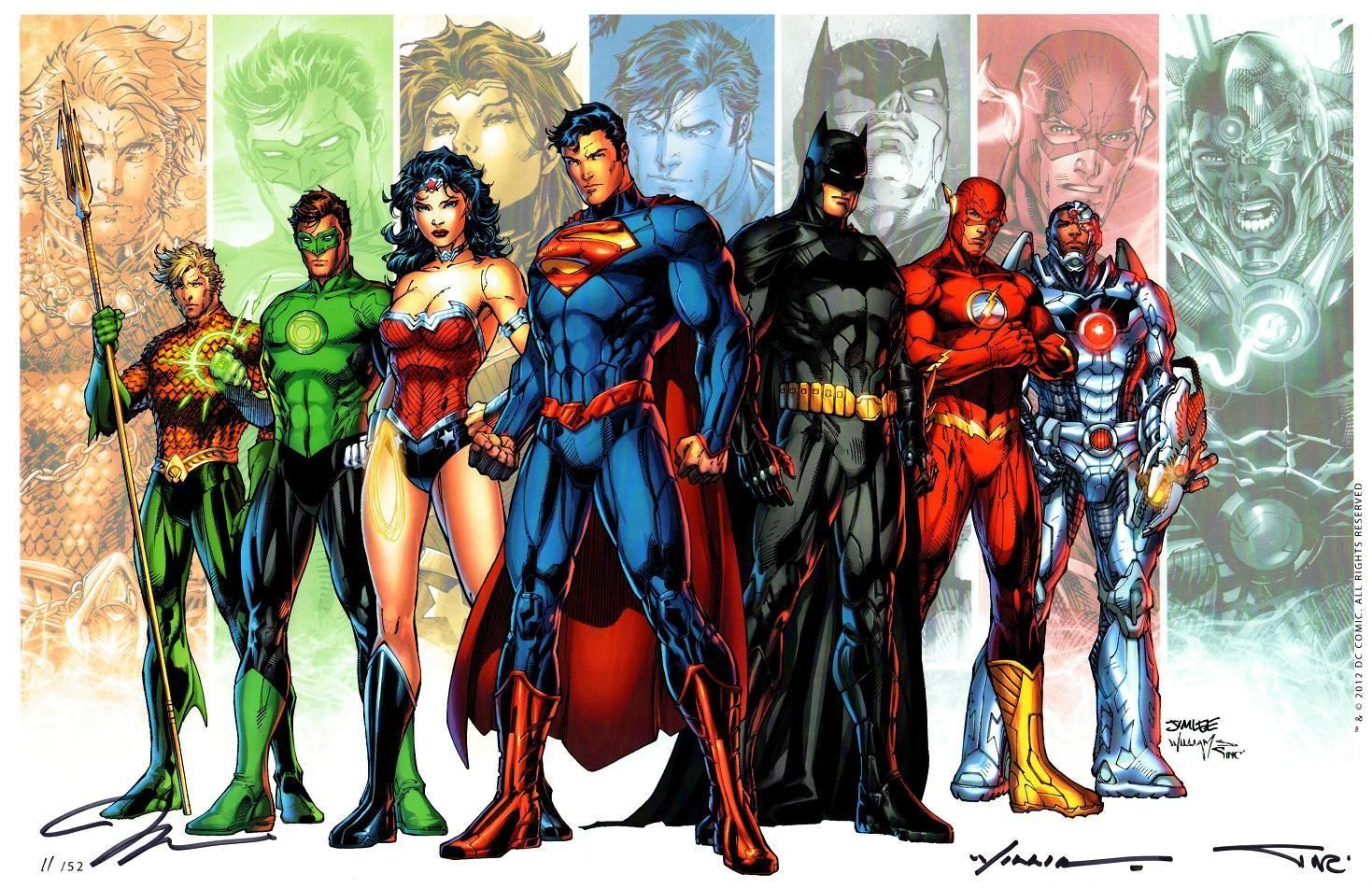In a new interview, former DC Comics Co-Publisher Dan DiDio has explained why he believes comics are so obsessed with superheroes, and the problems this causes.DiDio has been a controversial figure in DC Comics over the years as one of the most public faces of the company in the 2000s and 2010s. Since his departure from the company in 2020, DiDio has been candid about his hopes and fears for mainstream comics, especially those in the direct market, the network through which the biggest American comics are sold. In the direct market, distributors act as the go-betweens between comics companies and comic book stores, which themselves helped create the rise of the market in the 1970s. The complicated and often absurd economics and incentives the system creates are much like DiDio himself, endlessly criticized, but undoubtedly influential.
In a recent interview with Zach Rabiroff for The Comics Journal, DiDio has explained why he believes the direct market seems to only foster superhero comics, and why this is a problem both economically and creatively. As DiDio says, when the direct market began in the 1970s, it narrowed the scope of what mainstream comics could be. Suddenly, superhero comics went from encompassing about 40 percent of the market alongside other genres like romance, mysteries and sci-fi, to making up 85 percent of the market.
Why? Because that’s what the direct market wanted. And as the story is told, popular, successful books on the newsstand that were profitable were being canceled to free up resources to create maybe not as profitable, but more focused books for the direct market, which were superhero-based.
And we narrow ourselves, and we’ve created this very tight little box, and it was fed by fandom. Fandom owning stores, and basically only buying what they wanted as the gatekeepers of what [the industry] went to.
"Everybody asks for change, but nobody really wants it"
The direct market is essentially a self-selecting in-group. People who go to comic book stores want to buy superhero comics, and it’s those same people who own comic book stores. DiDio goes on to explain that the market is insular and as it shrinks, prices for books have to go up, pushing away more potential readers and hurting the companies themselves. The other issue with this state of affairs, according to DiDio, is that it really just limits the artistic and creative potential of mainstream comics. If everything has to be superheroes, then there’s less room for literally any other genres.
From the New 52’s multitude of genre titles and its integration of Wildstorm, to the Young Animal imprint, to the late-2010s Vertigo relaunch, DiDio’s tenure at DC was full of attempts to broaden DC’s genre portfolio. While, as DiDio notes in the interview, so many of these books found critical success, the majority didn't see the longevity anyone would hope for. However, some fans would place at least some of the blame at DiDio’s own feet, since these initiatives, especially the New 52, were roundly criticized for their lack of forward planning or consistency in output. It’s easy for DiDio to criticize DC and lament his inability to change things from the inside, but he was at the helm for so many controversial decisions.
DiDio’s interview does beg the question of what it might take for comic companies to actually push the comics market in more varied directions. DiDio makes it clear that he doesn’t believe that DC or Marvel are interested in actively looking to change their offerings, and his own failures to do so in his time prove that, at some level, change would have to come from consumers. Perhaps the genre-hopping DC films promised recently by James Gunn can push consumers to want greater diversity in their mainstream comics, but this would need a level of cross-pollination between movie-goers and comics readers that hasn’t been seen before. DiDio, for his part, is experimenting with his and Frank Miller’s new company, Frank Miller Presents, pushing comics with more manga and YA influences to the direct market. Bolstered by his fellow controversial industry titan and free from the oversight of DC Comics, perhaps Dan DiDio can prove his own fears wrong, but only time will tell.
Source: The Comics Journal


